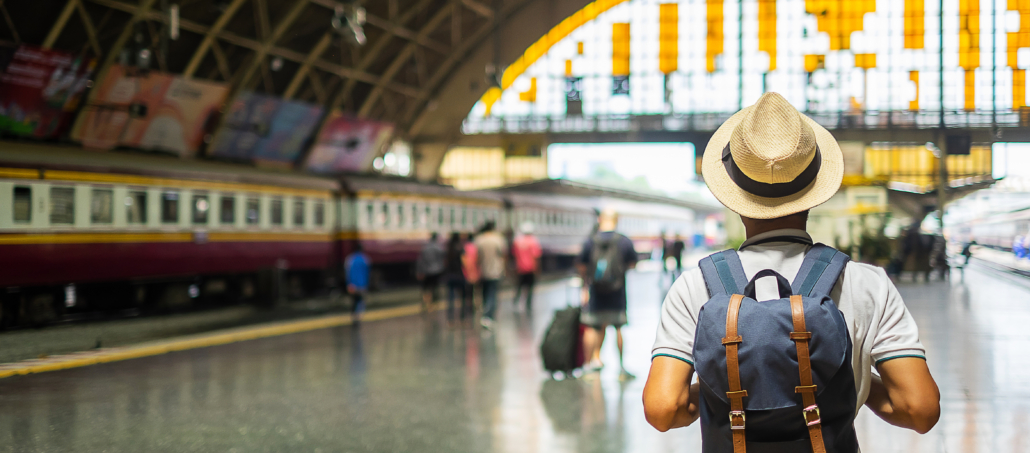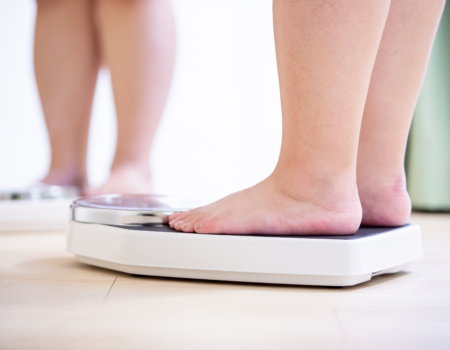Tips for Eating Healthy While Traveling

It’s summer, YAY, and as parts of the world re-open, many of us are taking those postponed vacations and visiting loved ones who we haven’t seen in over a year. No matter your mode of transportation, you’ll likely need to eat at some point. It’s easy to get derailed by all of the excitement that comes along with travel. But with a little planning and forethought, you can avert the road-trip bloat and stay on track with your healthy eating. For many of us, road trips include several stops including the drive thru and convenience stores.
Whether you’re traveling just for the day or for a long weekend, try to carve out a little time beforehand to shop for nutrient dense provisions for the trip so you won’t be tempted by unhealthy snacks and fast food. If it’s an extra-long road trip, consider packing a small cooler and fill it with protein rich, high fiber foods that will keep you satisfied but won’t weigh you down.
Eat breakfast
I mean, how many times has your coach told you not to skip breakfast? It’s a scientific fact that breakfast is the most important meal of the day, kickstarting your metabolism and setting you up for healthier choices throughout the day. A healthy road trip starts with a healthy, protein and fiber-rich breakfast. Doing so will give you the fuel to keep you alert and focused during your drive. With a really good breakfast, you may not even need those snacks you packed, and you can save them for the beach instead!
Water
One of the best things you can do during travel (or any time) is to stay hydrated. Among the many benefits of water are – increased energy, flushing of toxins, regularity and healthy digestion and less bloat. Many of my clients tell me they don’t like to drink water when they travel because they don’t want to stop for a bathroom break. Taking a break to go to the bathroom is not only necessary but it will also force you to stretch your legs, will improve circulation and will help with grogginess especially if you’ve been on the road for a while. Drink your water. Stop to pee. You’ll still get to your destination on time, and your body and your waistline will thank you for it!
Pack Your Snacks
Staying ahead of hunger with quick, nutrient dense bites will help you make healthier food choices throughout the rest of your trip. If you are on-plan at Cōpare, this should be a no-brainer – just pack the items we’ve given you. Otherwise, snacks like nuts, pre-cut veggie sticks, fresh fruit, protein bars, hard boiled eggs (pre-peeled), unsweetened Greek yogurt, and beef or turkey jerky are great to have on-hand. They’ll keep both your blood sugar stable and your hunger hormones in check. Plan accordingly and divide big bags of snacks like nuts or beef jerky into single servings so that you don’t accidentally eat your entire stash before the trip is over.
Eat Your Veggies
Vacation is no time to be skipping veggies. The fiber will help with your hydration and will keep you regular. Many people become constipated during travel. When traveling, commit to eating veggies with every meal, even when you’re ordering out.
If You Must Stop – Keep It Simple
- Stock up on water.
- Find the Veggies. Most convenient stores have cut up veggies, like celery sticks. WAWA is one of my favorite stops because they have good, pre-packaged salads and cut up veggies and fruit.
- Look for protein sources. Pre-made hard boiled eggs are typically easy to find. Some stops, like WAWA and Sheets offer made-to-order egg options. Choose the omelet, skip the breads and wraps. If you can only order a sandwich, discard the bread before you start eating, or have it open-faced. Low carb, no sugar protein bars, and protein drinks are plentiful in convenient stores.
- Chew gum. If you feel like you want to nosh while driving, but it’s not time for a meal or snack, chewing sugar-free gum can help minimize that oral fixation.
- Stop at fast food places that offer low-carb options. While the sodium may be an issue, at least you won’t be kicked out of fat burn while trying to stay on- program. Chick-Fil-A offers grilled nuggets or a grilled breast with great salad options.
Know Your Amenities And Plan Fun Activities
Familiarize yourself, preferably ahead of time, with amenities that will be available to you including a grocery store, gym, cooking equipment i.e., a microwave, blender etc. Are there walking/hiking trails? Places to rent bikes, kayaks? Use vacation as a time for discovery and exploration.
Stick to a routine
Vacation is a time to relax and most of us don’t want to be on a rigid schedule. However, sticking to a consistent sleep routine and a simple exercise routine i.e., a morning walk will keep you feeling refreshed.
Eating out
Just like your coach encourages you to research menus ahead of time while at home, having a plan prior to eating out while on vacation can prepare you both physically and mentally. As always, ask your coach for help. Watch your portions. Familiarize yourself with Helping Hands to help you visualize.
What to Avoid
What you put in your body during your road trip is critical – and what you don’t put in your body is just as important. I’ve already covered the obvious – the fast food, fried food etc. Also, skip the processed, over-salted chips and pretzels. Not only are they high in processed carbohydrates, they will also cause you to retain water. Avoid sugary drinks like soda and juices – every sugar high will be followed by a sugar low, leaving you moody and unable to concentrate on your driving or negotiate a traffic jam.
The Bottom Line
Travel can be a time of excitement – and the potential for some stress. When we are under stress, we tend to make easy choices which are not always the best for our health. But if you’ve planned and packed your cooler, the least stressful and quickest option will be right there next to you. If you need help strategizing for your trip, talk to your coach. We can help with meal and snack ideas, restaurant menus, help locate nearby grocery stores etc. Remember, with proper planning, it is possible to travel happily and healthfully.
If you fail to plan, you plan to fail.
Benjamin Franklin
Describe your personal journey and how you finally learned to stop “YOYO”dieting
I participated in a weight loss program but did not fully internalize the concepts I was taught while on the program. As a result, I slowly gained back all of the weight plus 20 pounds. My wife, a healthcare professional, told me that I was headed toward a life of disease and discomfort if I didn’t focus on making the necessary changes to my diet that would enable me to lose weight. I came to the realization that I needed to set a course that would be more lasting and not result in “Yo-Yo” gains again. It was a two-pronged approach – I increased the intensity of my workouts at the gym, and more importantly, I gradually replaced the terrible things I was eating in with nutritious wholesome foods. I also learned that I could get enjoyment and pleasure out of life from things other than food. I replaced the joy I would get from eating food with little things like getting out of my house more, getting lots of sunshine, taking care of my body with chiropractic care and massage, and going on lengthy and challenging hikes with my wife and dog several times throughout the year.
It’s men’s health month. Describe how the men that you’ve worked with feel after they lose weight
Almost all men tell me that they were shocked to learn that they could lose their weight while not being hungry. They still had to overcome some of their old psychological cravings but were thrilled that they could eat deliciously and healthfully at the same time. Most were excited to share their discoveries with spices and new ways of cooking. Most graduates of the program express their gratitude for us not only successfully transitioning them from the weight loss program to a sustainable maintenance phase, but also for being there to assist in many other health and lifestyle choices and challenges they confront on a daily basis.
Keys to success
There are two keys in my view: one is from a short-term perspective and other is longer term in nature. While on the program, planning, preparation, and leaning in and trusting your coach are the keys to success. Your coach will equip you with the knowledge and the tools to achieve your weight loss goals. It is up to the client to make the time to plan and prepare their meals. This means planning for meals a few days in advance and ensuring pantries, refrigerators, and freezers are adequately stocked. But I believe successful clients tend to consider two other longer-term questions before implementing any successful weight loss plan: Where does weight loss and health fit into my overall priorities in life within the confines of faith, family, friends, finances, career, etc.? The other question is how healthy do I want to be for the rest of my life? I have found that those who take a long-term perspective about where weight loss fits into their overall health and well-being (and not just losing a certain number of pounds over a certain period of time) tend to find more long term and sustainable success.
Anything else?
Mindset is key. There is no finish line for successful weight loss and good health; it is a never-ending quest to look better, feel better, and perform better. It is a lifelong endeavor and a process that needs to be constantly finetuned. When people find it difficult to achieve their weight loss and heath goals, it is typically a result of not having all the pieces in place. That is where we as health coaches at Cōpare come in. Lastly, the path and the process for everyone is unique and that’s what makes the job of the health coach both challenging and rewarding.



